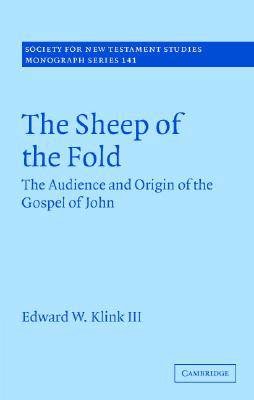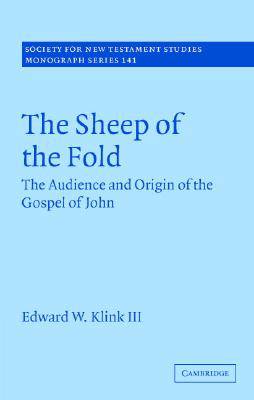
Wil je zeker zijn dat je cadeautjes op tijd onder de kerstboom liggen? Onze winkels ontvangen jou met open armen. Nu met extra openingsuren op zondag!
- Afhalen na 1 uur in een winkel met voorraad
- Gratis thuislevering in België vanaf € 30
- Ruim aanbod met 7 miljoen producten
Wil je zeker zijn dat je cadeautjes op tijd onder de kerstboom liggen? Onze winkels ontvangen jou met open armen. Nu met extra openingsuren op zondag!
- Afhalen na 1 uur in een winkel met voorraad
- Gratis thuislevering in België vanaf € 30
- Ruim aanbod met 7 miljoen producten
Zoeken
€ 109,95
+ 219 punten
Uitvoering
Omschrijving
The last generation of gospel scholarship has considered the reconstruction and analysis of the audience behind the gospels as paradigmatic. The key hermeneutical template for reading the gospels has been the quest for the community that each gospel represents. This scholarly consensus regarding the audience of the gospels has been reconsidered. Using as a test case one of the most entrenched gospels, Edward Klink explores the evidence for the audience behind the Gospel of John. This study challenges the prevailing gospel paradigm by examining the community construct and its functional potential in early Christianity, the appropriation of a gospel text and J. L. Martyn's two-level reading of John, and the implied reader located within the narrative. The study concludes by proposing a more appropriate audience model for reading John, as well as some implications for the function of the gospel in early Christianity.
Specificaties
Betrokkenen
- Auteur(s):
- Uitgeverij:
Inhoud
- Aantal bladzijden:
- 334
- Taal:
- Engels
- Reeks:
- Reeksnummer:
- nr. 141
Eigenschappen
- Productcode (EAN):
- 9780521875820
- Verschijningsdatum:
- 27/08/2007
- Uitvoering:
- Hardcover
- Formaat:
- Ongenaaid / garenloos gebonden
- Afmetingen:
- 179 mm x 224 mm
- Gewicht:
- 639 g

Alleen bij Standaard Boekhandel
+ 219 punten op je klantenkaart van Standaard Boekhandel
Beoordelingen
We publiceren alleen reviews die voldoen aan de voorwaarden voor reviews. Bekijk onze voorwaarden voor reviews.











